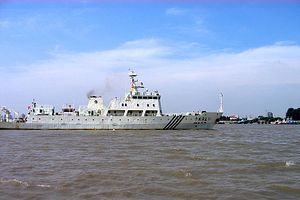China will not compromise on its notorious nine-dash line claiming nearly all of the South China Sea even after an upcoming verdict on a key international case against Beijing filed by the Philippines, a top Chinese scholar told a key regional forum in Malaysia Wednesday.
Ahead of the verdict on the Philippines’ South China Sea case against China at the Permanent Court of Arbitration (PCA) at The Hague, some scholars and experts had opined that should the Court find that Beijing’s nine-dash line contradicts international law, the Chinese government could clarify the status of the nine-dash line on its own even if it ignores the actual verdict as many expect it to do (See: “Does the Philippines’ South China Sea Case Against China Really Matter?”).
But in response to comments and questions by several individuals along these lines at the annual Asia-Pacific Roundtable in Kuala Lumpur – one of the region’s premier annual Track Two forums – Wu Sichun, a leading Chinese scholar, said there was no room for compromise on this question.
Arguing that the nine-dash line carries “fundamental importance” to both the Chinese people and government in terms of sovereignty and historic rights, Wu , the head of the influential National institute for South China Sea Studies in China, said domestic politics made it virtually impossible for any sort of compromise.
“There is no compromise room for Chinese authorities to either banter or compromise with this U-shaped line. It is purely a domestic political issue,” Wu said during the question and answer session following his panel remarks.
Earlier, during his address to the audience, Wu emphasized that China will not implement the court’s decision – expected this month or next – and that the international community should understand that Beijing will never give up its legitimate territorial sovereignty and maritime interests and rights in the South China Sea. He also added that China’s response should not be regarded as a challenge to international law as there had been other precedents of countries not adhering to similar judgments.
“[T]here have also been a number of international precedents of non-enforcement of international arbitration or judicial judgments. Chinese non-enforcement shouldn’t be regarded as challenging to international law or international order,” Wu said.
Wu later went on to cite a familiar list of reasons for why the process had been viewed by Beijing as “unjust,” including the fact that the president of the International Tribunal of the Law of the Sea (ITLOS) who selected arbitrators was Japanese – a complicating factor since Tokyo also has territorial disputes with China. He said it seemed like the Court had become “a spokesman of the Philippines.”
































